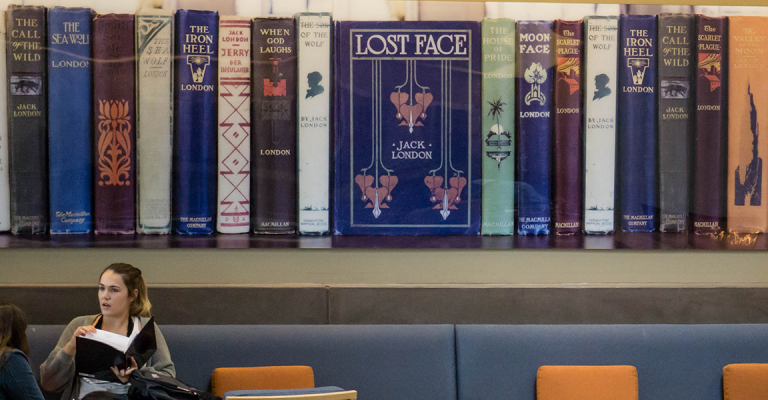Hutchins Lower Division General Education Program
Hutchins Lower Division General Education Program is an FLC and SYE open to all SSU students
Fulfill your GE requirements at Hutchins!
The Hutchins School offers a comprehensive interdisciplinary curriculum that spans the first two years at SSU. Satisfy your GE requirements through exciting seminar-based courses, complete with labs, field trips, guest speakers, art integration, and more. Participate in a truly interdisciplinary approach, where small classes, deep conversations, and integration of ideas spark a more meaningful learning experience.
Small Seminars: At The Hutchins School, you’ll never be a face in the crowd or struggle to find a seat in the GE courses you want to take. Hutchins GE Program courses meet in small seminars of about 15 students twice weekly, where students discuss readings, films, presentations, and other assignments with facilitation and guidance from their teacher.
Weekly Symposiums: All seminar sections meet together in a weekly symposium that hosts guest speakers, holds lectures, shows films, takes field trips, and much more.
Students develop a strong sense of membership in a learning community within their small seminars and across the entire group cohort. Our curriculum emphasizes excellence in written and oral communication and does not use testing to assess students. Rather, students are assessed based on their reading, writing, listening and speaking, creativity and critical thinking.
Hutchins GE Courses:
Rather than covering just two GE areas in a year-long course like a typical FLC, Hutchins GE Program students take an FLC or SYE course that covers 2-3 GE areas each semester. Students take three courses, one each semester during their first and second years at SSU. These courses integrate different GE areas together in a thematic approach focused on topical issues and classic questions. The Hutchins GE course sequence is as follows:
LIBS 101: The Human Enigma (10 units): covers GE 1A English Composition 3A Arts 5B Biological sciences 5C Lab
LIBS 102: In Search of Self (9 units): covers GE 1C Oral Communication Lower Division 4 Social Sciences, American Institutions: US History requirement, American Institutions: US Constitution/ CA Government requirement
LIBS 201: Exploring the Unknown (9 units, second year fall): covers GE 1B Critical Thinking 3B Humanities 5A Physical Sciences
o Total = 29 units of GE
First year Hutchins GE Program students also take a transition course, LIBS 103 (1 unit), Spring semester. Students who choose the writing support option on the GE A2 Directed
Self-Placement survey enroll in LIBS 100 (2 units) during their first year Fall semester, along with LIBS 101.
Descriptions of GE Program course content:
LIBS 101: The Human Enigma (9 units)
This course is designed to introduce you to the interdisciplinary work of liberal studies and the unique community of the Hutchins School. In it, we weave together art, natural science, and social science to consider what it means to be human and to examine the diverse ways we see, know, and experience the world. Specific topics include art creation and human creativity, evolution, human connections to the nonhuman environment, existential philosophy, and social structures and cultural contexts.
LIBS 102: In Search of Self (6 units) (Recommended: take GE F Ethnics Studies (3 units) along with LIBS 102)
This course focuses on the individual, exploring how personal history, unconscious processes, and political and historical environments shape the concept of the self. This course develops a fuller understanding of these influences through historical exploration and creative expression, employing materials drawn from psychology, sociology, literature, history, politics, and the arts.
LIBS 201: Exploring the Unknown (9 units)
An investigation of the meaning and limits of knowledge with respect to the nature of the mind and physical reality. These issues are pursued through several different but interrelated fields of study, including literature, art, philosophy, comparative religion, and science. The course considers Newtonian and quantum mechanical theories of physical reality, the religions of various cultures, and the functions of myth. The term includes a section focusing on the nature of human creativity.
As first year and second year students complete their General Education at The Hutchins School, they can also take elective courses of their choice and pre-major requirements for other fields of study. After completing the Hutchins general education program, students can continue in the Liberal Studies major or transfer to another major at SSU. Transfer students or first year students admitted to SSU with substantial GE course credit enter Hutchins at the upper division major instead of enrolling in Hutchins GE Program courses.


